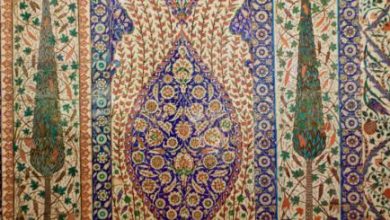PART 3 – DEVELOPING YOURSELF

Developing Your Own Qualities
If you are serious about your journey in this life and the hereafter, embark on a journey of iman before choosing a spouse.
Why is this important? Once we go towards the Creator, He will give us wisdom and understanding. Unite the heart with Allah, and go towards what benefits us. Just by doing that, we will reach a different level of comprehension of life, and things get clearer little by little.
Look at the list that you wrote in Part 2 of this series. How many of the list relate to Islam? Are they at the top or bottom of the list? Are they even on the list at all? This is the most telling way of knowing where you yourself stand.
Question yourself, take your time, and beg Allah for guidance to help you plan what you should achieve in this life and in the hereafter. Cleanse yourself of diseases of the heart and be sincere in your journey.
For both men and women, is your goal in life dunia or the hereafter? Which one is more important? The answer sets the tone for everything else.
Would your priority be the accumulation of material comforts – the nice house, the new cars, the holidays and the beautiful children, but with no Islam in your life? Or are you more focused on your life in the hereafter and would be happy to compromise a chunk of your dunia criteria for it?
If the hereafter is more important, then what are you willing to sacrifice from this life in order to achieve that goal?
The development of iman is not an overnight endeavour, but the more you embark on its wonderful journey, the more you will find your own vision of your surroundings changing. Things and values which were important to you become less urgent, and qualities and attitudes which you had not noticed before will be viewed in a different light. As your iman increases, someone you found very attractive previously will no longer be so, and someone you never noticed previously might suddenly be very appealing as a life partner. This is why it is important to stabilize yourself and your iman before the marriage, and not after!
If you are asking how someone’s iman, or lack of it, can impact your day to day married life, consider this simple example. One who is obedient to Allah and in constant remembrance of Allah will be surrounded by angels – there are various ahadeeth to support this. Conversely, one who is disobedient or is far from Allah will be surrounded by shaitan. The angels will flee from him, as angels do not linger in a spiritually contaminated environment. Angels and shayateen will never be in the same proximity, for the two never mix. Who is the person you prefer to sleep beside every night, someone whose behaviour attracts the angels or the shayateen?
Breaking the habit
Nowadays, Muslims tend to focus on the external appearances only. We build Islam from the outside in, rather than developing our iman from within. We are easily impressed by appearances – nice clothes, beautiful or handsome features. In reality, we are made up of habits – manner and akhlak, some of which has been tainted by our upbringing and environment. Can we honestly assess ourselves and see where we are in the general scale? Are we able to identify our bad habits, and if so, what are we willing to do about it?
The only way to break a bad habit is to embark on a truthful journey of iman. We should emulate the footsteps of the Companions, all of whom had habits borne out of jahiliyyah and tribalism – but once their journey of iman started, they eradicated their negative habits to become slaves of Allah.
When we are running after the material life, we are compromising our principles. Once a Muslim is in the selfish pursuit of dunia, he will become spiritually and morally blinded, unable to see what is good or bad for him. If one doesn’t know what is good for him, can he make the right choice or benefit others?
There is an Arabic saying that the glass will not give except what it contains. A glass of milk can only give milk. Similarly, a heart full of goodness will give goodness. A heart filled with garbage can only produce garbage. If our hearts are filled with all our material needs and desires, then what do we have to give others?
If we forget who we are, our roles and responsibilities, we forget what is of benefit to us. If our goals are scattered, we will choose our spouses accordingly, with no guiding principles, but rather based on passion, materialistic values and living for the moment. We mislabel it as liberation and free choice, but in reality, we will be chained to a miserable life if that choice is exercised wrongly.
If we are serious, the only cure of our bad habits is to go back to Allah, and to clean ourselves up internally before we form any lifelong commitments to anyone else. We have to know what our goal in life is, and from there, we can determine the kind of person we want as our companion to achieve that goal. If we know what our goal is, then we will know whether a person will benefit us in achieving the goal, or distract us from it. Our choice will be guided by principle, not by desire or longing.
What if I am in my twenties, fresh out of school or university, without the knowledge or experience to assess others? If so, then seek advice from someone who is wise, mature and has your best interests at heart. Do not turn to others who are equally vulnerable, unstable and naïve for guidance, even if they mean well. However, this is also a beautiful time for you, for your bad habits have not been ingrained and are still capable of remedy. You can establish your goals in life now, while your slate is still clean and not hampered by the baggage of your past experiences. You can still assess where you want to be, in this life and the next, and work to grow towards that direction.
What if I am in my thirties? By now, you should have enough maturity to know what is real and what is false in life. You should by now, having gone through your own experiences, establish what it is that you want in life. You should no longer be gullible to glitter, but you should be able to distinguish the mask from the person. However, it is now timely to see whether you had the correct goals in life. It is time, if you have been negligent of your hereafter, to pay attention to it, and with your wisdom, formulate new goals for yourself if your current ones are lacking. The beauty of being in your thirties is that you have the maturity to stand for what you want, and defend what you believe in. You have the wisdom to know whether your knowledge is lacking and how you can seek knowledge from the right sources.
What if I am in my forties and above? It is never too late to reassess where you are in life and what your goals should be. It might be a struggle to overcome a lifetime of habits and ways of doing things which have probably become deeply rooted into your very core, but this is a challenge you can rise to. Examine where you are in life, and where you should be in relation to the hereafter. Look at your life, and the lives of your peers, and from there you can learn from your mistakes and theirs. No action or habit is permanent, but the breaking of the chain has to be initiated by you. If you have spent your life in neglect of Allah and your deen, just remind yourself that Allah is not going anywhere, but it is up to you to seek Him. The Qur’an states that Allah will not change someone’s condition until that person changes himself, and from this you know that once you take that first sincere step, Allah will help you through.
Once you reach this point, then you have the knowledge on how to continue. If we are sincere in achieving our goal, we would know the aspects of our lives and our future partners that cannot be compromised upon, and the areas in which there is leeway. Basically, in being true to our goal, we can distinguish between the dealbreakers and the bonuses.




